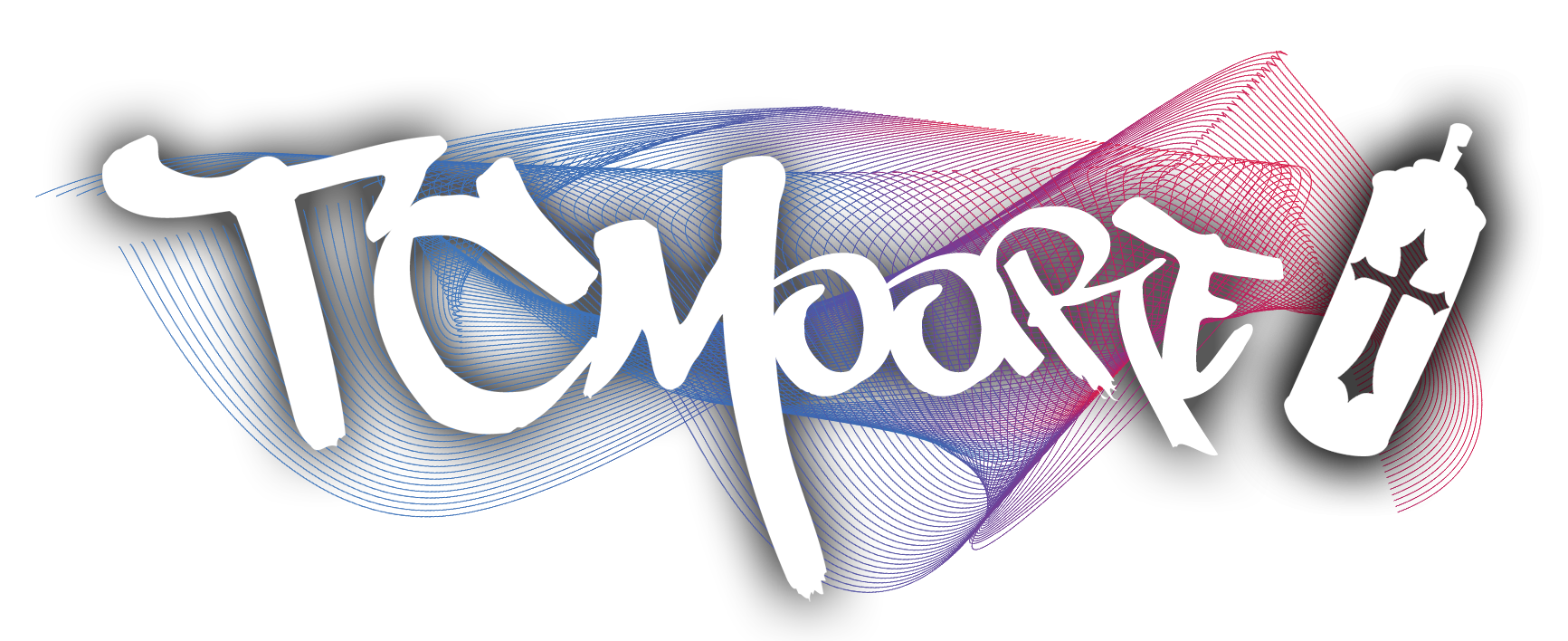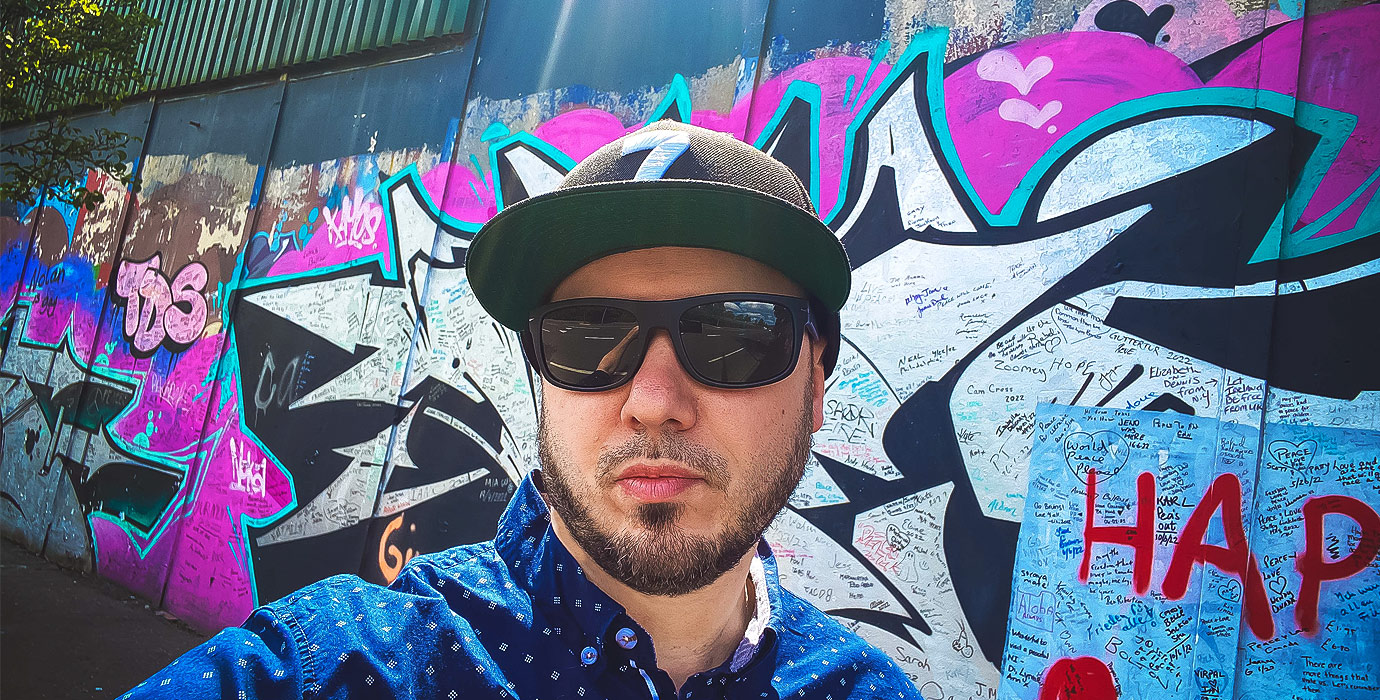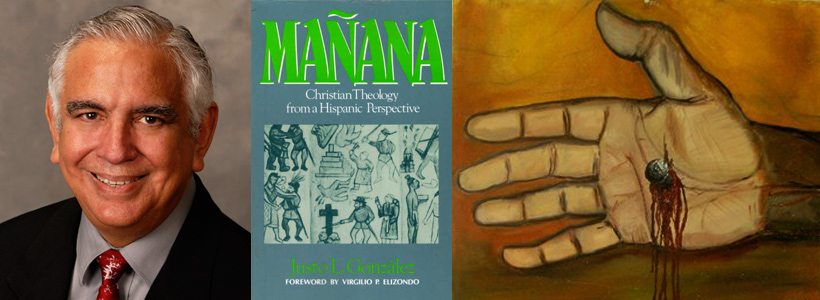This is the fourth part of our series on Justo González and the politics of impassibility. (If you’re just tuning in, be sure to check out parts one, two, and three.)
Two the best chapters in Mañana 1, are chapter 9: “On Being Human,” and chapter 10: “And the Word Was Made Flesh”. In these two brief chapters, González accomplishes something most theology scholars could devote dozens of books to and not address nearly as thoroughly. In the span of 30 pages, González takes readers through a seminary degree’s worth of insights into human nature, church history, Scripture, and Christology. But if that wasn't enough, he continues to integrate the socio-political nature of faith into his discussion.
In this fourth part, I’ll attempt to synthesize González’s thought on human nature from chapter 9, the implications it has on Christian theology, the church, as well as the socio-political ramifications. Let’s dive in!
1. Justo González, Mañana: Christian Theology from a Hispanic Perspective (Abingdon, 1990) [http://a.co/d/796zdoh]
What is Human Being?
All Christian doctrines can be misused to oppress people. But the doctrine of humanity has been particularly useful in this regard. González clearly and concisely shows just how this can be accomplished. The first step is to dissect the human being into “parts,” rather than considering a person a united whole.“The Bible is not interested in the body and the soul, or in the body, the soul, and the spirit, as constitutive parts of the human creature. The Bible is not interested in how many parts there are to us or to how they relate to each other, but rather in the divine purposes for our lives, and how we can be obedient to such purposes. As José Ortega y Gasset would say, ‘A human being is not a thing, but a drama.’
“...the Bible nowhere says that the soul is immortal. On the contrary, Jesus speaks of one who can ‘kill the soul’ (Matt. 10:28). In most cases, the Bible uses the term ‘soul’ as another way of speaking of one’s entire being, without any attempt to distinguish it from the body or to enter into discussions as to how many parts constitute a human being.”
“...the soul and the body are not two different parts of a person but rather the same person as seen from different perspectives. A human being is not a soul that has taken up a body, nor a body to which has been added a soul, but a single being who is at the same time both body and soul.”
“The Bible does not speak of human beings as divided into two ‘parts’ or ‘substances.’ It speaks rather of a single entity that is properly understood neither in purely materialistic terms nor in purely spiritual terms. The entire human being is body, and the same human being is soul. A disembodied soul is not a human being, just as a ‘dis-souled’ body is no longer a human being.” - p.126-127At this point, it might not be clear to some how one’s view of the human being has any bearing on Christology, let alone politics. That is because of the pervasiveness of the myth of abstract theology. One’s view of the human being supposed to be neutral. González will dispel that myth and connect the dots.
“...the common understanding of the human being as consisting of two (or three) parts is not a sociopolitically neutral notion. On the contrary, it has been used and is still used to justify oppression. Once one divides human nature into two parts, one physical and the other psychical, it is a simply matter to move on to the affirmation that the higher element in our life is the psychical. At least by implication, the physical is then downgraded and seen, if not as evil, at least as less significant or less human. Thus from the division of the human creature into two substances follows the hierarchization of those substances.” - p.128Just as soon as people start dividing up the human nature into “parts,” the discussion naturally flows into an ordering of priority. In the history of Western philosophy, the “soul” or “mind” has always been valued above the body in the exact same way Plato envisioned the abstract forms being greater than their physical manifestations. The hierarchization of soul/mind over the physical body is classic, Greek dualism, and it has dramatically influenced Christian theology and politics. For example, González cites Pope Innocent III’s use of this dualism to assert the ecclesiastical priority of authority over the state:
“As God the creator of the universe established two great lights in the heavens, the greater to preside over the day, and the smaller to preside over the night, thus did he also establish two great authorities in the heaven of the universal church... the greater, that it might preside over souls as if they were days, and the lesser, that it might preside over bodies as if they were nights. These are the pontifical authority and the royal power.” - p.128It’s difficult not to hear the echoes of “Plato’s Cave” in Innocent’s description. The bodies over which the royal power has jurisdiction are less real than the souls over which the Church rules. Thus the mind-body hierarchization is carried over and applied politically. But González also notes that this dualism not limited to Christian theology and politics.
“...quite apart from issues of church and state, this hierarchical understanding of the relation between soul and body contributes to a similarly hierarchal understanding of society.” - p.128The hierarchization of human nature also contributes to a hierarchization of human achievements and activities. The prioritization of the mind-soul to the body means those with education, those who enjoy the “vocation of leisure” (as philosophy was known in Plato’s era of Athens), those who study and teach in universities, are superior to those who toil in fields or perform manual labor. This harkens back to the “impassibility” that the philosophers in Athens exhibited toward the slaves who built the city and toiled while they reclined to philosophize on abstract ideas.
“On this basis [mind-body dualism], men who have been doing their theology in universities and libraries have tended to look down upon the women who cook their food and the minorities who collect their garbage.”
“The hierarchical ordering of the soul and body is then joined to the racist and sexist notion that women and people of darker skin are best suited for physical pursuits, whereas white males are best suited for the intellectual life. The obvious conclusion is that the present ordering of society—and of the ‘traditional’ household—is grounded on human nature and ought not to be questioned. But it is clear that it can and should be questioned.” - p.129
Being-For-Others
González draws upon the Genesis narrative of creation to correct dualism and also construct a positive account of human being. In this section, he confronts hierarchical relationships between men and women as well as between humanity and the creation. One of the most profound insights González shares in this section is that essential and complete human nature is “being-for-others.” Humanity was created to be in relationships with ‘others’. It was not good that “man” be alone. Instead, God created humanity in a system of relations in which humanity has a vocation of “dominion.” This “being-for-others” nature is critical to understanding humanity’s vocation of dominion because it is directly related to humanity’s creation in the image and likeness of God.“...the very verse that speaks of human dominion over creation puts that dominion in a certain context: ‘Let us make the human in our image, after our likeness; and let them have dominion...’ The dominion is after the likeness of God’s dominion. And God’s dominion, as we have already seen, is dominion in love. God does not rule the earth and humankind as a tyrant. God’s very nature is being-for-others, love.” - p.131
Sin as For-Other-ness Breaking
From there, González goes on to show the effect of sin on human being.“In Genesis 1:26-27, it is both the male and the female that are to have dominion. But in Genesis 3, after the fall, the man claims dominion over the woman by giving her a name not his own. In this naming, they are alienated from each other. They are no longer ish and ishshah. Now she is Eve, named by Adam. Their intended for-otherness, based on their being ‘fit’ for each other, ‘as in front of’ each other, is now disrupted. Thus is the society of dominance born, in which we are alienated from one another. In such a society, it is not only the ‘other’ that is lost. We are all lost because we have lost our for-otherness, and God has rightly said ‘it is not good’ for us to be for ourselves.” - p.134
Criminalization, Sexualization, and Privatization
González points to at least three ways sin has been distorted by culture and therefore the fundamental disordering of human nature has been misunderstood. First, sin has been associated with crime. When political and ecclesial authorities conspire to amass power, they conflate sin with crime. In this way the religious condemnation of sin supports the political status quo.“The almighty God is turned into an ally of the mighty in our society, thus creating an almost invincible alliance. But sin is not always crime, and crime is not always sin. This has been very clear to Christians who have been a minority within any given society. In the early church, to be killed for refusing to obey the law that required the emperor be worshiped was no sin but was rather the crown of Christian faithfulness. Moses and his followers broke the law of Egypt, from whose standpoint they were criminals. Early Christians, by having a common table at which master and slave ate together, broke the law of Rome. Martin Luther King, Jr., broke the laws of many states. All these people should unashamedly be called criminals. They broke the law. When caught—and some of them wished to be caught—they were legally condemned. We may now say that the laws by which they were condemned were unfair. But it was the law, and they broke it. They were outlaws for God. In this they followed the same path as that convicted outlaw and executed criminal, Jesus of Nazareth.” - p.134Sin has also been reduced to sexual misconduct. This can serve as nothing more than a smokescreen that protects the powerful who exploit the poor and a reasserting of mind-body dualism.
“Although theologians repeatedly tell us that sin is much more than improper sexual activity, in our common parlance ‘sin’ is almost equated with that subject. And yet if we were to read the entire Bible, listing on the one hand those texts that seek to regulate sexual practice and on the other hand those that seek to limit and regulate property rights, we would find that the latter outweigh the former. The God of the Bible is concerned with the misuse of property at least as much as with the misuse of sex. Yet we hear very little in the church about the misuse of property. What we hear is vague, such as the notion of ‘stewardship.’ But we are not told that the ‘maximization of profit’ is condemned by God because it violates the rights of the poor (see, for instance, Deut. 24:17-22; Lev. 19:9-10; 23:22) This selective preaching and teaching is not mere coincidence. Nor is it because sexual sins are more common. It is rather because we have learned to interpret “sin” like so many other elements in biblical doctrine, in a manner that is less offensive to the powerful.” - p.135-136This sexualization of sin also relates back to the mind-body dualism:
“The philosophical tradition in which that hierarchical understanding developed held that the goal of wisdom was to have the mind be totally in control of the body and its passions.” - p.136In this we can hear the echo of the pagan, idol god—the passionless, “impassible” god is thought to be the highest imaginable perfection. Thus, the Christians who adopted this foreign god as their own, began being molded in its image:
“Since in sexual activity the body takes control over the mind, such activity came to be seen as the opposite of the life of wisdom and virtue. When such views were introduced in the Christian church, they became one of the main impulses leading many Christians to a life of celibacy.” - p. 136Who better to represent the impassible god who is free from “passions” than a celibate priest who is thought to be from the “passions” of sexualized sin? But this sexualization of sin also contributed to a view of sin that divorced it from matters of economics.
“Such privatization of sin contradicts the very nature of our humanity. It is ‘not good’ for us to be alone. An individual alone is not the person God intended. We are created for-otherness. It is only when that for-otherness takes place that we are the human beings God intends. This for-otherness is for God as well as for creation and for other human beings. We stand amid God’s creation, as part of it and responsible to it and to others as the concrete expression of our responsibility toward God. As in Ortega y Gasset’s famous dictum, ‘Yo soy yo y mi circunstancia’ (I am I and my circumstance). Sin is the violation of that for-otherness. Sin is the violation of God’s image in us, which is precisely the image of God’s for-otherness.” - p.136-137What it means to be human is to be a united person of soul and body given a vocation of dominion that reflects God’s very image and likeness: God’s for-otherness. The dividing of the human being into parts precipitates dualism which leads to political oppression. Sin has been associated with society’s crimes, sexualized, and privatized. But each of these distortions misses the fundamental nature of human being. We were created to to reflect God’s for-otherness. Economics is an indispensable and inseparable aspect of human for-otherness. In part 5, we see how González relates these insights to the Word Made Flesh. Stay tuned!
1. Justo González, Mañana: Christian Theology from a Hispanic Perspective (Abingdon, 1990) [http://a.co/d/796zdoh]


